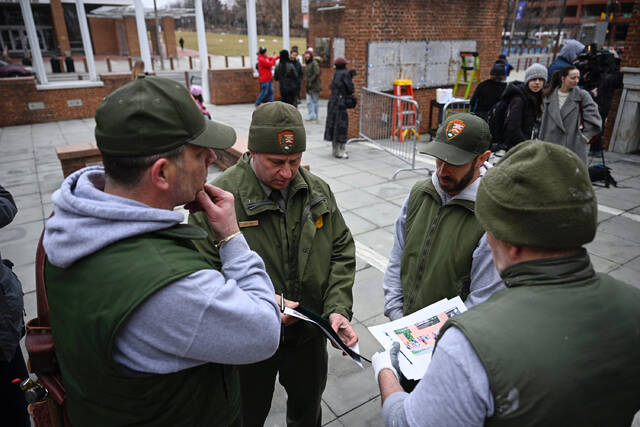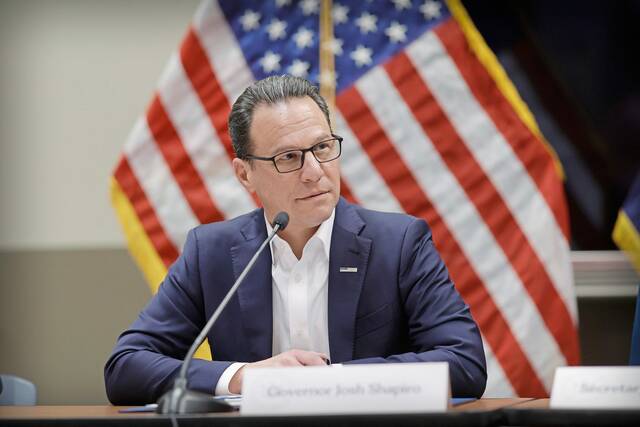Voters might be excused if they are confused when they scan the ballot in Pennsylvania next month and see a question asking to amend the state constitution to include a crime victims rights amendment.
The proposed amendment, dubbed Marsy’s Law, seems to echo Pennsylvania’s Crime Victims Act. That law first passed more than two decades ago and later amended established the creation of a state victim advocate and recognized the rights of crime victims.
But state lawmakers and victim advocates say the proposal goes one step further and provides a much-needed balance between the rights of victims and those accused of crimes.
“Currently we have all of these amazing enumerated victim rights, but nothing to enforce them. This provides a mechanism for victims to motion the court to ensure their rights are enforced,” said Pennsylvania Victim Advocate Jennifer Storm.
State lawmakers passed the measure by overwhelming margins in the last two legislative sessions. The text and a plain English explanation of the amendment is being advertised in newspapers across the state this week. It will become part of the state constitution if a majority of voters approve it in November.
The move is part of a national campaign California tech billionaire Henry J. Nicholas III is underwriting in memory of his sister Marsy. She was stalked and murdered by an ex-boyfriend while a student at the University of California in Santa Barbara in 1983.
Nicholas’ goal was to ensure no one else ever experienced the horror his mother faced when she encountered the man who would be convicted of her daughter’s murder, free on bond in a local grocery store, several days after his arrest.
Although state after state came to codify victims rights in legislation during the 1980s and 90s, Nicholas continued his campaign. Marsy’s Law finally became a constitutional amendment in California in 2008. Since that time about a dozen states have adopted similar amendments.
Storm said she’s been pushing for such an amendment in Pennsylvania since she came to office in 2013.
She said victims continue to be overlooked despite the state laws.
“Often times there are guilty pleas without victims being given notice or an opportunity to be heard. In Bedford County we had numerous victims come to our office and file complaints. But it wasn’t until we forwarded those complaints to the attorney general that they found not only was the district attorney violating victims rights, he was corrupt. But victims couldn’t access the courts to tell the judge this was happening,” Storm said.
Although various law enforcement groups and the state district attorneys association have stepped forward to endorse the amendment, legal experts aren’t all on the same page.
Bruce Ledewitz, a Pennsylvania constitutional law scholar and Duquesne University law professor, said he sees very little impact from the proposed amendment.
“A lot of the things it is proposing are already being done. I would have rather seen the legislature come up with money for victim services rather than the hubbub of passing a meaningless constitutional amendment,” he said.
Elizabeth Randol, legislative director for the Pennsylvania ACLU, said the language is vague and she fears it could impede the due process rights of those accused of crime. It adds the victim’s voice to the “awesome power” of the state that defendants in criminal cases already face, Randol said.
Like Ledewitz, she’d prefer to see such issues taken up in legislation.
“If the legislature wants to enforce, change or expand victims rights, amending the statutory language in the Crime Victims Act is a far more prudent option. A constitutional amendment, if enacted, is not flexible. Should unintended or unforeseen problems arise with implementation, application or interpretation, amending the constitution (again) is an unduly burdensome, if not unrealistic, mechanism to make the necessary adjustments,” she said.
Randol conceded that opposing a victims rights movement is a hard sell to the general public.
The ACLU is one of few voices questioning it.
But Randol insisted victims aren’t getting a clear picture of what the amendment will do.
Although the amendment creates a right for victims to assert their rights before courts hearing their cases, Randol said it specifically excludes officers of the court and public officials from any civil liability for violation of a victim’s rights.
“I think victims have been misled about the kind of protections it will enable. I think they will be sadly surprised,” she said.











